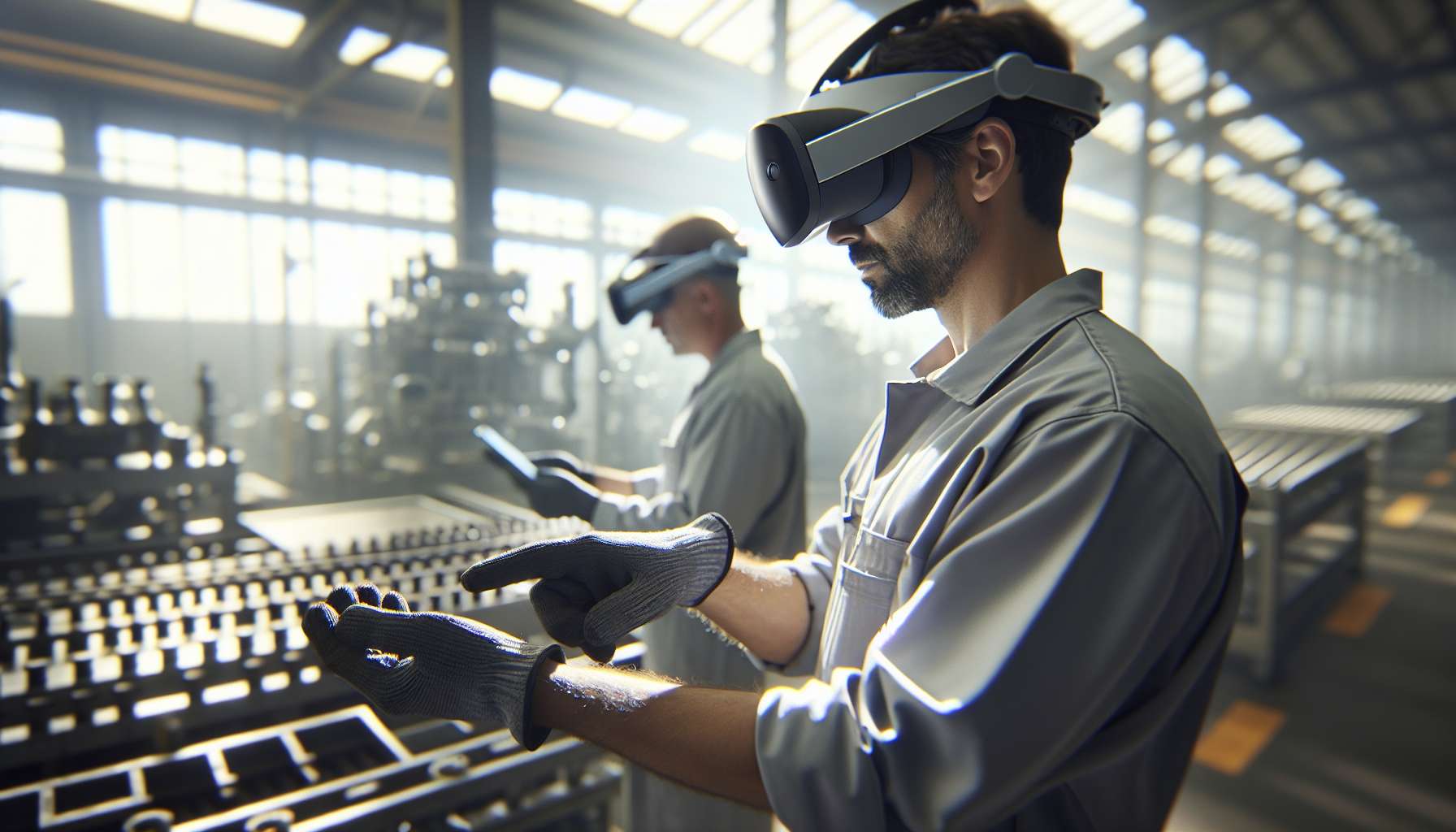Unlocking the Potential of Augmented Reality in Manufacturing Sales
Augmented Reality (AR) has emerged as a game-changing technology in various industries, and manufacturing is no exception. With its ability to overlay digital information onto the real world, AR is transforming the way sales processes are conducted in the manufacturing sector. In this article, we will explore the practical applications of AR in manufacturing sales and how it can revolutionize your business.
Enhancing Product Demonstrations
One of the key challenges in manufacturing sales is effectively showcasing complex products and their features to potential customers. Traditional methods often involve bulky prototypes or static images, which may not fully convey the value and functionality of the product. AR offers a solution by allowing sales teams to create immersive and interactive product demonstrations.
By using AR-enabled devices such as smartphones or tablets, sales representatives can overlay virtual 3D models of products onto the real world. This enables customers to visualize the product in their own environment, explore its features from different angles, and even interact with virtual components. The ability to provide realistic and engaging product demonstrations can significantly enhance the sales process and increase customer confidence.
Streamlining Customization and Configuration
In the manufacturing industry, customization and configuration are often crucial factors in closing a sale. However, these processes can be complex and time-consuming, leading to delays and potential errors. AR can streamline customization and configuration by providing real-time visual guidance to sales teams and customers.
With AR, sales representatives can use digital overlays to guide customers through the customization process, ensuring that all specifications and requirements are accurately captured. This not only saves time but also minimizes the risk of miscommunication or misunderstandings. Additionally, AR can simulate different configurations, allowing customers to visualize the end result before making a decision. This level of interactivity and visualization can greatly improve the customer experience and increase sales conversion rates.
Remote Collaboration and Support
In today’s globalized manufacturing landscape, sales teams often need to collaborate with colleagues and customers located in different regions. AR can bridge the gap by enabling remote collaboration and support through virtual communication tools.
Using AR-enabled devices, sales teams can conduct virtual meetings, share real-time data, and provide remote support to customers. For example, a sales representative can guide a customer through a troubleshooting process by overlaying step-by-step instructions onto the customer’s physical equipment. This not only saves travel costs but also ensures faster response times and improved customer satisfaction.
Improving Training and Onboarding
Effective training and onboarding are crucial for sales teams to understand and effectively sell complex manufacturing products. AR can play a vital role in this process by providing immersive and interactive training experiences.
With AR, sales teams can access virtual training modules that simulate real-world scenarios, allowing them to practice their sales techniques and product knowledge in a risk-free environment. AR can also provide on-the-job support by overlaying contextual information and guidance during customer interactions. By leveraging AR for training and onboarding, manufacturing sales teams can become more confident, knowledgeable, and successful in their roles.
The Future of AR in Manufacturing Sales
The potential of AR in manufacturing sales is vast and continues to evolve. As the technology advances, we can expect to see even more innovative applications and benefits. For example, AR-powered analytics can provide real-time insights into customer behavior and preferences, enabling sales teams to tailor their approach and offerings accordingly.
Furthermore, the integration of artificial intelligence (AI) with AR can enhance the capabilities of sales processes. AI algorithms can analyze customer data, predict buying patterns, and provide personalized recommendations, empowering sales teams to deliver targeted and effective sales pitches.
In conclusion, augmented reality is revolutionizing manufacturing sales by enhancing product demonstrations, streamlining customization and configuration, enabling remote collaboration and support, and improving training and onboarding. By embracing AR, manufacturing businesses can gain a competitive edge, increase sales performance, and deliver exceptional customer experiences. The future of AR in manufacturing sales is bright, and now is the time to explore its potential for your business.





